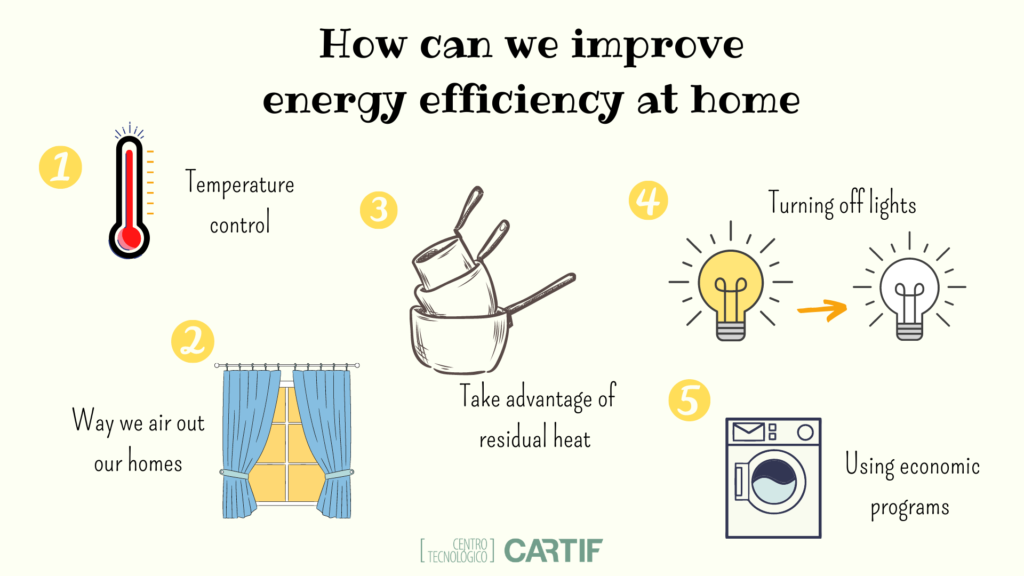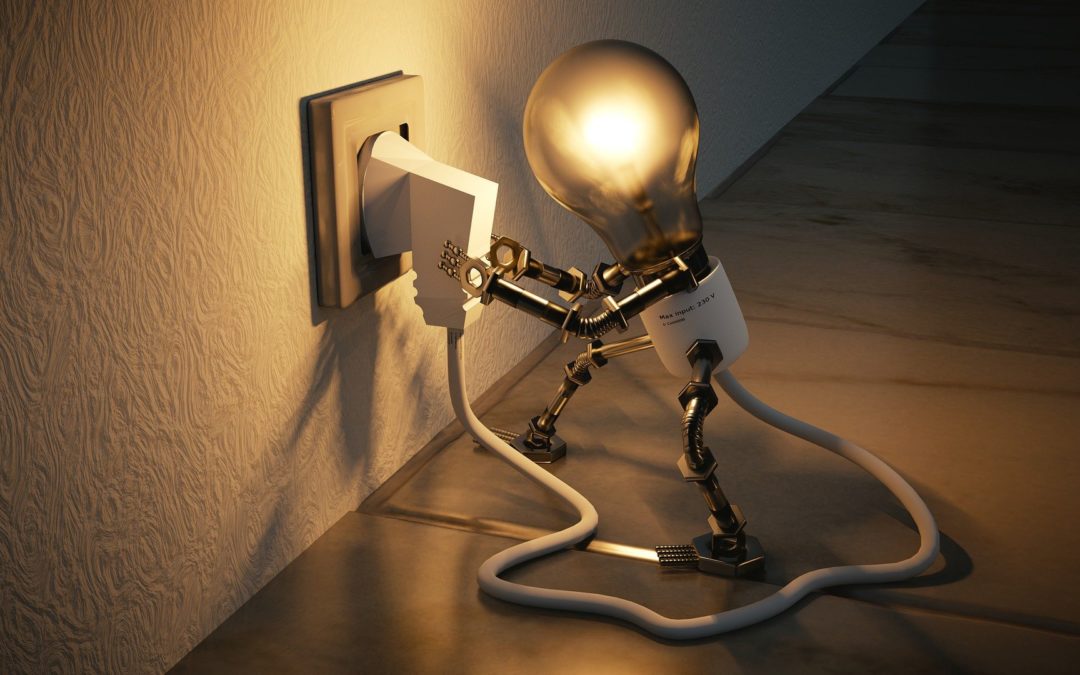When we hear energy efficiency, we always think in improving productive process in facories where we work, in the means of transport we use to move… but never in daily chores in our home. Actions as common as choosing an appliance or the cooking way, establish the degree of our awareness with energy efficiency at homes.
Reflecting on this aspect, these common activities are associated with energy consumption, and therefore, any action aimed at making them more efficient will affect the consumption of our houses. In addition, this concept takes on special relevance in the current context of a growing escalation in the prices of the energy we consume, which is proposed to last over time.
Some measures imply an economic investment, which in many cases presupposes a negative attitude, although we need a reflection on them or a good awareness campaign about it. For example, there are few homes with an incandescent bulb, and the use of bulbs with LED technology is already very common. In the same way, progress in being made in the introduction of more efficient electrical appliance in our homes. These are classified with a letter (A,A+ …) which indicates the consumption of the equipment. Although those that consumes less tend to have higher cost, it must be considered that over time this investment is compensated with a lower cost of electricity.
But not all these soluions that improve our energy efficiency necesssarily imply an economic cost. Thus, for example, we can save energy by acting on:
- The control of the heating and cooling temperature setpoints, maintaining adequate comfort values, and although, currently, we are more aware, surely, we all know homes where tenants usually find themselves in winter with summer clothes because they prefer to select a higher temperature setpoint than necessary.
- The way we air out our homes. It is not necessary to do it for a long period of time, as is very common to see, and to carry it out at the appropriate times of the day (example: in winter, when the outside temperature is higher or in summer, in the early hours). This measure, complemented by a proper use of the blinds,opening them in sunny hours in winter and closing them in those periods in summer, allows a considerable reduction in air conditioning consumption to be achieved. It is true that with the current pandemic situation and the COVID19 measures to increase the ventilation of closed places, it is difficult to apply efficiency.
- When cooking, trying to take advantage of residual heat from glass-ceramic hobs by “turning of the fire” a few minutes before finishing cooking or planning our menus and taking advantages of the ignition of ovens to bake several dishes.
- Turning off lights in areas where you do not stay, or disconnecting standby equipment that is not going to be used for a long periods of time or at night.
- Wash properly, using the economic programs of both washing machines and dishwashers, and preferably do it at full load, which not only saves energy but also water, a good in many cases scarce.

These and other small measures are a good starting point to save energy in our homes. We have to think that not being efficient does not only mean a higher energy expenditure or an increase in our electricity and gas bill, but it also means a damage to our society and the environment that surrounds us.
At CARTIF, we investigate in many areas of energy efficiency in buildings, developing multiple projects in this field, and we consider that the energy awareness and training of the end users of buildings, even in measures as simple as those indicated, is an important aspect and it has repercussions in progress and social benefit for all.
- How can we improve energy efficiency at home? - 26 August 2021
